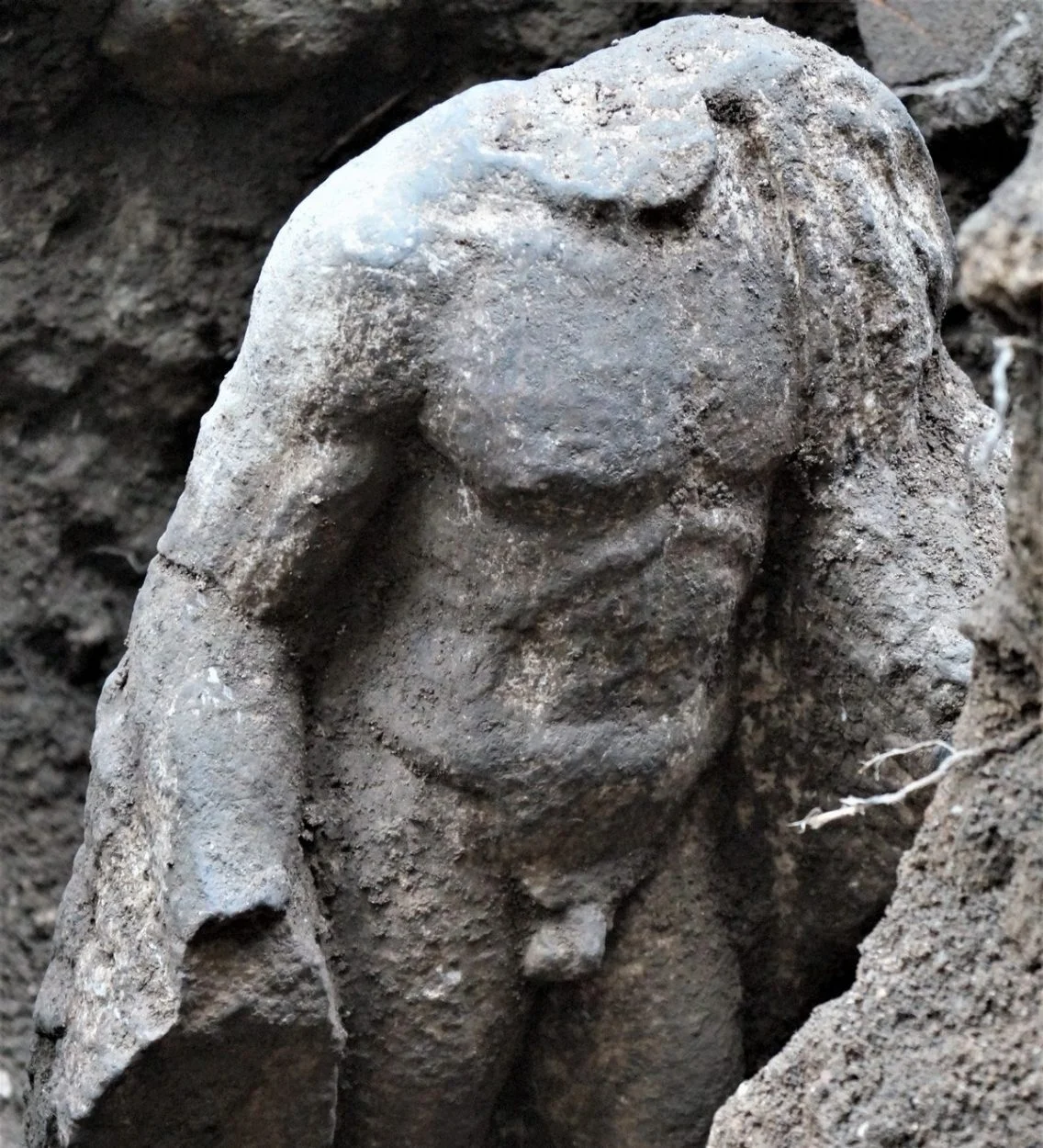ARCHAEOLOGISTS CONDUCTING EXCAVATIONS IN THE CENTRE OF ANCIENT VERIA IN NORTHERN GREECE HAVE UNCOVERED A ROMAN-ERA STATUE FROM THE 2ND OR EARLY 3RD CENTURY AD.

The city surrendered to the Roman Empire in 168 BC following the Battle of Pydna, emerging as a ceremonial centre and one of two capitals of the Roman province of Macedonia.In a statement issued by the Greek Ministry of Culture, archaeologists were conducting excavations near the site of Agios Patapios, where they uncovered a marble statue of a young man with an athletic body partially dressed in a cloak.

Archaeologists suggest that the Sculptor was clearly advanced in their work, emphasising features that recalls the classic patterns and images of statues related to Apollo or Hermes, in which a representative from the Greek Ministry of Culture said: “It is the work of a very skilled craftsman who obviously never finished.”